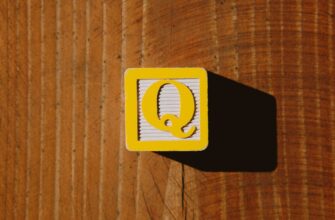## Introduction
Your cryptocurrency private key is the ultimate key to your digital wealth. Lose it, and your funds vanish forever. Share it carelessly, and you risk theft. For beginners, backing up this critical string of characters anonymously adds a vital layer of security against hackers and surveillance. This guide demystifies how to securely and privately preserve your keys without leaving digital breadcrumbs.
## Why Backup Your Private Key Anonymously?
Anonymous backups prevent tracing your crypto holdings to your identity. Here’s why it matters:
– **Privacy Protection**: Thwarts hackers scanning for exposed keys linked to personal data
– **Avoid Targeted Attacks**: Untraceable backups reduce risks of physical/digital theft
– **Regulatory Safety**: Maintains financial privacy in restrictive jurisdictions
– **Future-Proofing**: Prevents exposure if cloud services get breached
## Risks of Non-Anonymous Backup Methods
Common mistakes that compromise security:
1. **Cloud Storage**: Services like Google Drive or iCloud log your IP and account details
2. **Email Backups**: Attachments create permanent, hackable records tied to your identity
3. **Mobile Photos**: Metadata in smartphone pics reveals location/device info
4. **Printed Copies**: Stored carelessly at home with identifiable documents
## Step-by-Step Anonymous Backup Guide
Follow this beginner-friendly process:
### Step 1: Generate Keys Offline
– Use an air-gapped device (never internet-connected)
– Trusted tools: Electrum (desktop) or offline wallet generators
### Step 2: Choose Anonymous Storage Media
– **Encrypted USB Drives**: VeraCrypt-encrypted drives with 25+ character passwords
– **Metal Plates**: Fire/water-resistant steel plates engraved with key (no QR codes!)
– **Paper + Tamper Seal**: Handwritten copy in sealed envelope stored privately
### Step 3: Securely Store Physical Backups
– Split across multiple locations (e.g., home safe + trusted relative’s house)
– Never photograph or scan physical copies
– Avoid safety deposit boxes (require ID)
### Step 4: Verify Backup Integrity
– Test recovery with trivial funds before transferring large amounts
– Check backups annually for degradation (e.g., faded ink)
## Best Practices for Anonymous Storage
– **Zero Digital Traces**: Never type keys into online devices or apps
– **Plausible Deniability**: Use hidden volumes in encrypted drives
– **Geographic Separation**: Store backups in different cities/countries
– **Memory Over Tech**: Memorize parts of keys as a secondary safeguard
## Common Beginner Mistakes to Avoid
– **Using Public Printers**: Office/store printers often cache documents
– **Cloud Encryption**: Tools like LastPass still log metadata
– **Sharing Details**: Never reveal backup locations/methods to anyone
– **Complex Systems**: Avoid multi-signature setups until experienced
## FAQ
### Can I store encrypted keys online anonymously?
No. Encryption protects content but not metadata. Cloud providers log IP addresses, device info, and timestamps – all traceable to you. Use offline storage only.
### Is memorizing my private key safe?
Only for short-term or partial backup. Human memory is unreliable. Combine memorization (e.g., first/last 8 characters) with physical storage for redundancy.
### How often should I update backups?
Never, if done correctly initially. Private keys don’t change unless you generate new wallets. Just verify integrity annually. Changing backups increases exposure risk.
### Are hardware wallets anonymous backup solutions?
Not inherently. While they store keys offline, backup seed phrases still require anonymous handling. Follow the same physical storage protocols for your recovery phrase.
## Final Thoughts
Backing up private keys anonymously isn’t just technical – it’s behavioral. By avoiding digital footprints, using offline methods, and physically securing backups without identifiers, you create an impenetrable safety net. Start small, practice with test wallets, and remember: in crypto, your privacy is your first line of defense. Your future self will thank you.








